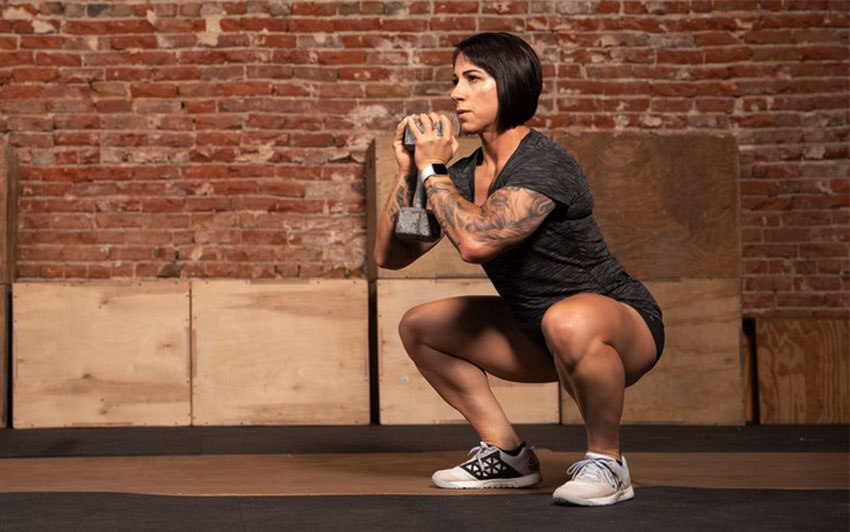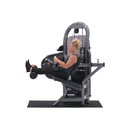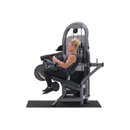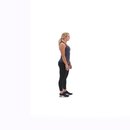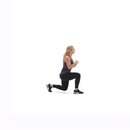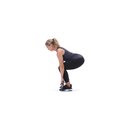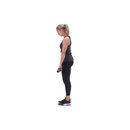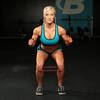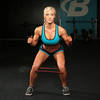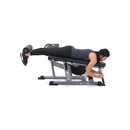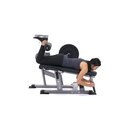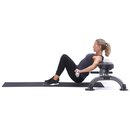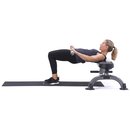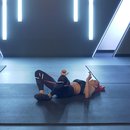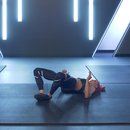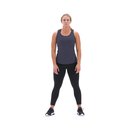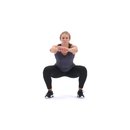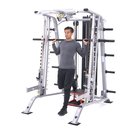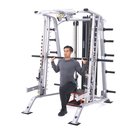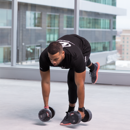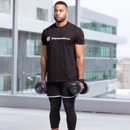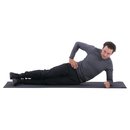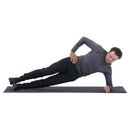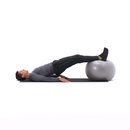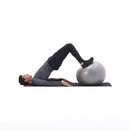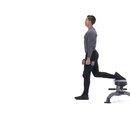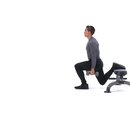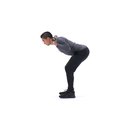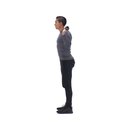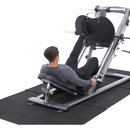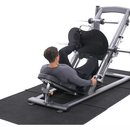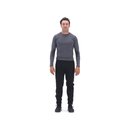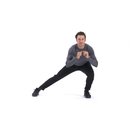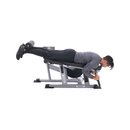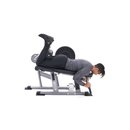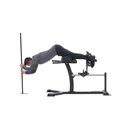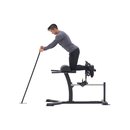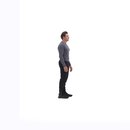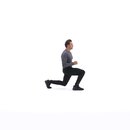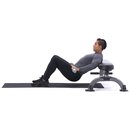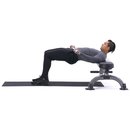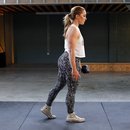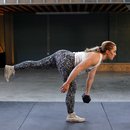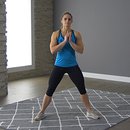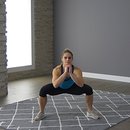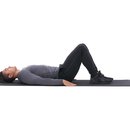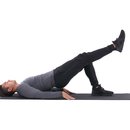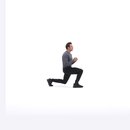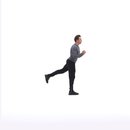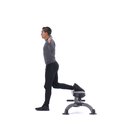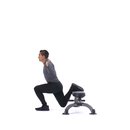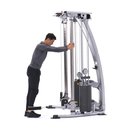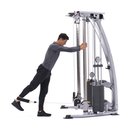Whether you're training for track, the stage, or your bathroom mirror, you'll always be rewarded for developing your hamstrings and glutes. While the fashion trend for glutes has changed over the years, I like to say that there has never been a hamstring that was too big.
As a trainer for more than 25 years, I've seen all the trends. My female clients used to want a smaller butt; however, this past decade changed all that. In the same span of time, though, I have never had a client want to downsize her hamstrings. They often want smaller quads—but never the hammies.
Having a nice "backside" used to just mean that you had a great butt, but increasingly more women—and not just Olympia contenders—are embracing strength and physical power, which means more than just a nice booty. It now refers to what I like to call the perfect partnership of the glutes and hamstrings.
Glutes And Hams Together
There are many ways to train legs. The upper/lower body split is a popular training protocol, while some choose to isolate their quad and hamstring workouts. Either way, you're working your glutes in all leg workouts, as they contribute to any movements that involve pressing with your legs, stepping, or hip extension. For this reason, you can do glute isolation movements and still reap the benefits for quads or hamstrings.
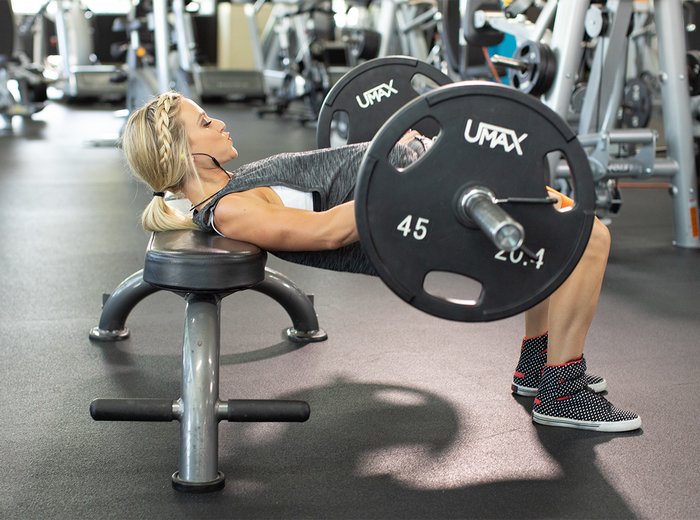
The beauty of training hamstrings and glutes together is twofold:
- Some exercises recruit both muscle groups in one movement; for example, the deadlift.
- You don't need equipment for a lot of the glute work, so it becomes easier to superset with hamstrings in a gym setting.
Now for workout splits. The variety of options exhausts even YouTube, but there are three approaches I like to consider:
- An even split of hamstring and glute exercises.
- A hamstring-heavy workout, with 2/3 of the exercises focused on hamstrings and 1/3 on glutes. This workout would include heavy hamstring movements like deadlifts and maxed-out lying hamstring curls, coupled with band work and thrusts for glutes.
- A glute-heavy workout with 2/3 of the exercises focused on glutes and 1/3 on hamstrings. You could implement heavy lunges, weighted split squats, and more isolated hamstring work with single-leg deadlifts, ball curls, or back-glute extensions.
A word of caution: I wouldn't advise putting all the huge movements in the same workout. Low-rep deadlifts, squats, and heavy lunges have the potential to leave you sore enough to put you out of commission for several days. When you split your lower body correctly, you can train legs several days a week without overtraining or compromising rest and repair.
For The Hammiest Hamstrings
The hamstring muscles include the semimembranosus, semitendinosus, and biceps femoris. Without diving too deeply into the anatomy, it is important to know that these muscles are a part of what links the pelvis and knee joints. Therefore, exercises that will best benefit your hamstrings are any that involve hip extension and knee flexion. Every hip hinge, every lunge, every sprint requires hip extension, and knee flexion occurs any time you bend your knees.
Stand tall and push one leg behind you—you will feel the hamstrings (and glutes) fire. This is hip extension.
Stand tall and lift one heel toward your butt. This is knee flexion.
You have numerous exercise options for working these two movements:
Hip Extension Exercises
- Good morning
- Deadlift
- Glute-ham raise
- Lower back extension
- Hamstring slide on a ball or the floor
- Quadruped hip extension
- Hip thrust
- Running
- Walking
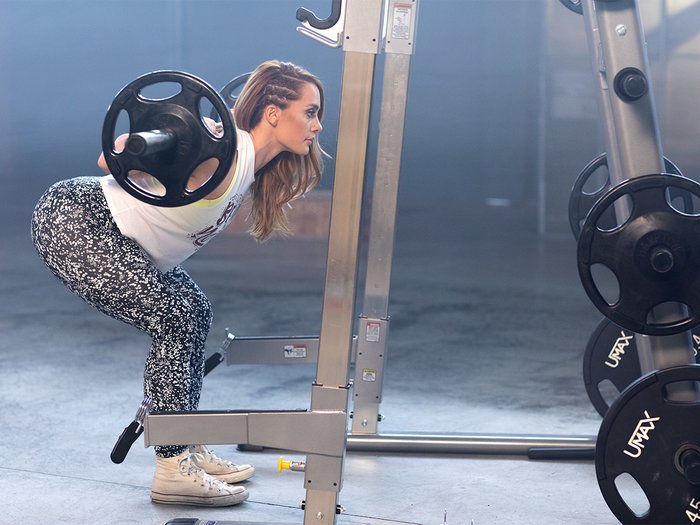
Knee Flexion Exercises
- Lying hamstring curl
- Seated hamstring curl
- Stability ball curl
- Lying heel slide
- Supine hamstring curl with resistance
For The Most Glorious Of Glutes
The three gluteal muscles that make up the buttocks are the gluteus maximus, gluteus medius, and gluteus minimus. As the name suggests, the maximus is the largest of the three. It is responsible for hip extension, lateral rotation, hip abduction, and sacroiliac stabilization. This big muscle contributes to some big movements:
- Deadlift
- Sumo squat
- Lunge—forward, backward, traveling, side
- Hip thrust
- Bridge
- Bulgarian split squat
- Glute-ham raise
Because the gluteus maximus works with hip extension, you can see how many hamstring exercises are also excellent glute exercises. A deadlift, bridge, or any type of thrust will use both the hamstrings and the gluteus maximus.
The gluteus medius is half the size of the gluteus maximus. It sits more laterally and is worked with lateral rotation, lateral extension, and lateral abduction. This is the muscle that can fix the dreaded "flat" butt, and it's also the muscle that can improve a host of injuries or a problematic gait. Knee instability or ankle issues are often traced back to a weak gluteus medius.
These exercises will help build and strengthen the gluteus medius:
- Frog pump
- Lateral band work
- Side lunge
- Banded kick-out
- Skater lunge
- Side plank hip abduction
- Elevated glute bridge
- Single-leg squat
The gluteus minimus also internally rotates the hip joint (inward thigh rotation) and functions with transverse abduction (a lateral movement where the thigh moves away from the midline of the body in a horizontal plane). It is an important stabilizer that works with all abduction exercises and can be especially pinpointed with a slight internal rotation of the thigh. For example, a side plank hip abduction with the toes pointed slightly toward the floor.
Considerations Before You Start
Pelvic Position
How your pelvis is positioned will determine if you can even fire your glutes. An excessive anterior pelvic tilt—arched back, butt up—will keep your glutes from firing properly and will put strain on your back. Plus, your hamstrings will be in a lengthened position.
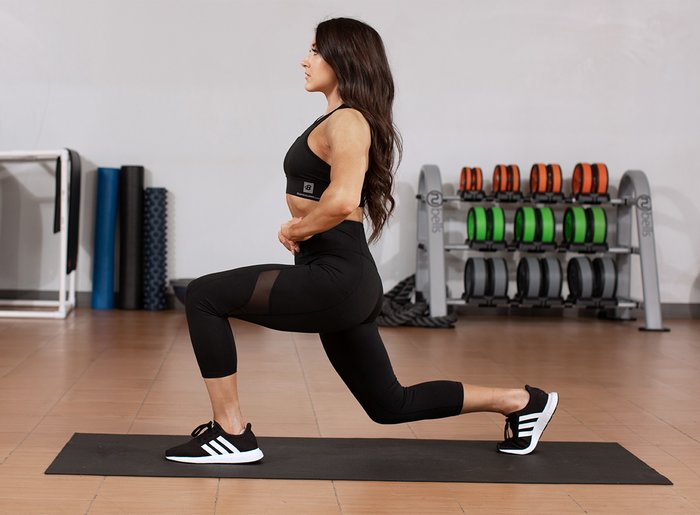
Stand and put your fingers on your hip bones at the front. Imagine they are headlights that should always shine straight ahead, not upward or downward. If it is difficult to hold this position, you will need to do some work to restore the natural length of the opposing muscles, the hip flexors.
Tight hip flexors will restrict hip extension and limit glute activity. If you sit for most of your day, it would be incredibly beneficial to spend some time rolling out your hip flexors and not always favoring seated exercises. (Bulgarian split squats will be your BFF!) A tight, shortened muscle is in a weakened position, so take the time to restore the muscle's natural length. For decades, I've watched people lunge and never build a butt because of tight hip flexors and an ill-positioned pelvis.
Foot Position
Believe it or not, your foot position can help you optimally target your hamstrings and glutes. If you turn your toes outward, you will activate the lateral hamstrings; if you turn your toes slightly inward, you will hit the often neglected medial hamstring muscles.
For the glutes, 30 percent hip abduction—toes out—will fire your dominant gluteus maximus, whereas some bodyweight side planks with hip abduction and toes pointed down will help build stability by hitting the glute minimus.
The Workouts
Always use some form of single-leg exercise for both hamstrings and glutes as these exercises reduce the risk of imbalances and injuries. Each workout includes a beginner and an advanced version, designated 1 and 2, but you can scale them to your experience level by adjusting the loads you're using—the goal is to get in all the reps!
Exercises are grouped together in supersets (two exercises together), trisets (three exercises together) or giant sets (four or more exercises together). Rest a minute or two after each round, not between exercises.
Hamstrings And Glutes—Even Split Focus
Because this workout calls for big movements for both hamstrings and glutes, I suggest working at about 75 percent of your max. If you can leg curl 100 pounds, use 70-80 pounds. If you lunge with a 40-pound barbell, go with the 30-pounder.
Hamstring Focus
With this workout, you're using big hamstring exercises and combining more single-leg, bodyweight, and banded glute movements. This is where you can max out on your hamstring exercises.
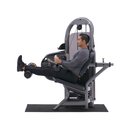
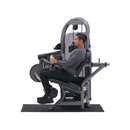
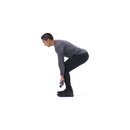
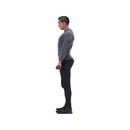
Glute Focus
Weighted glute exercises like lunges, Bulgarian split squats, and single-leg presses combine with more isolative hamstring exercises, like hamstring curls or single-leg deadlifts, to maximize glute medius involvement.
Build strong and shapely glutes and hamstrings, and get fit all over, with Jamie Eason's LiveFit trainer, available only on BodyFit by Bodybuilding.com.

